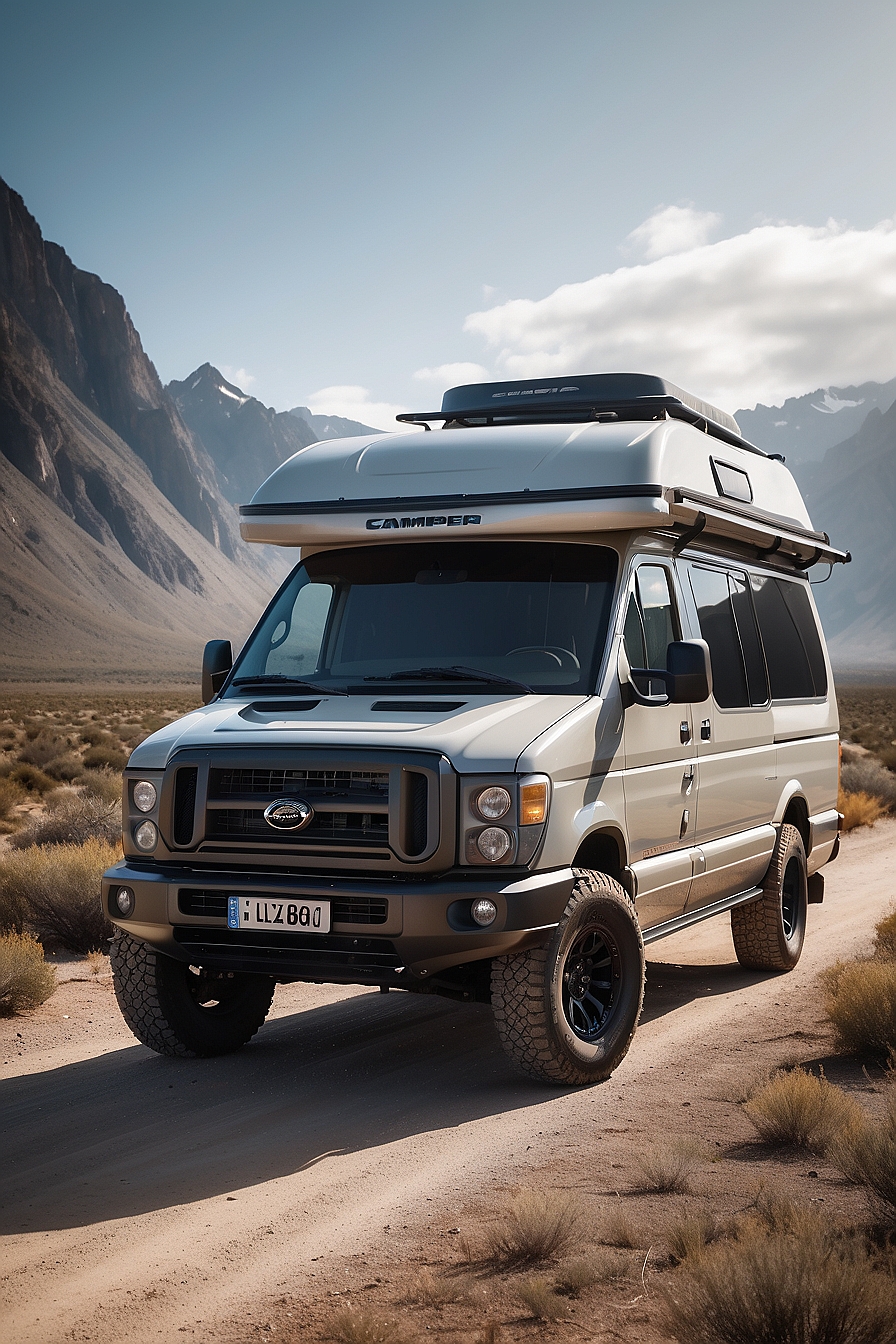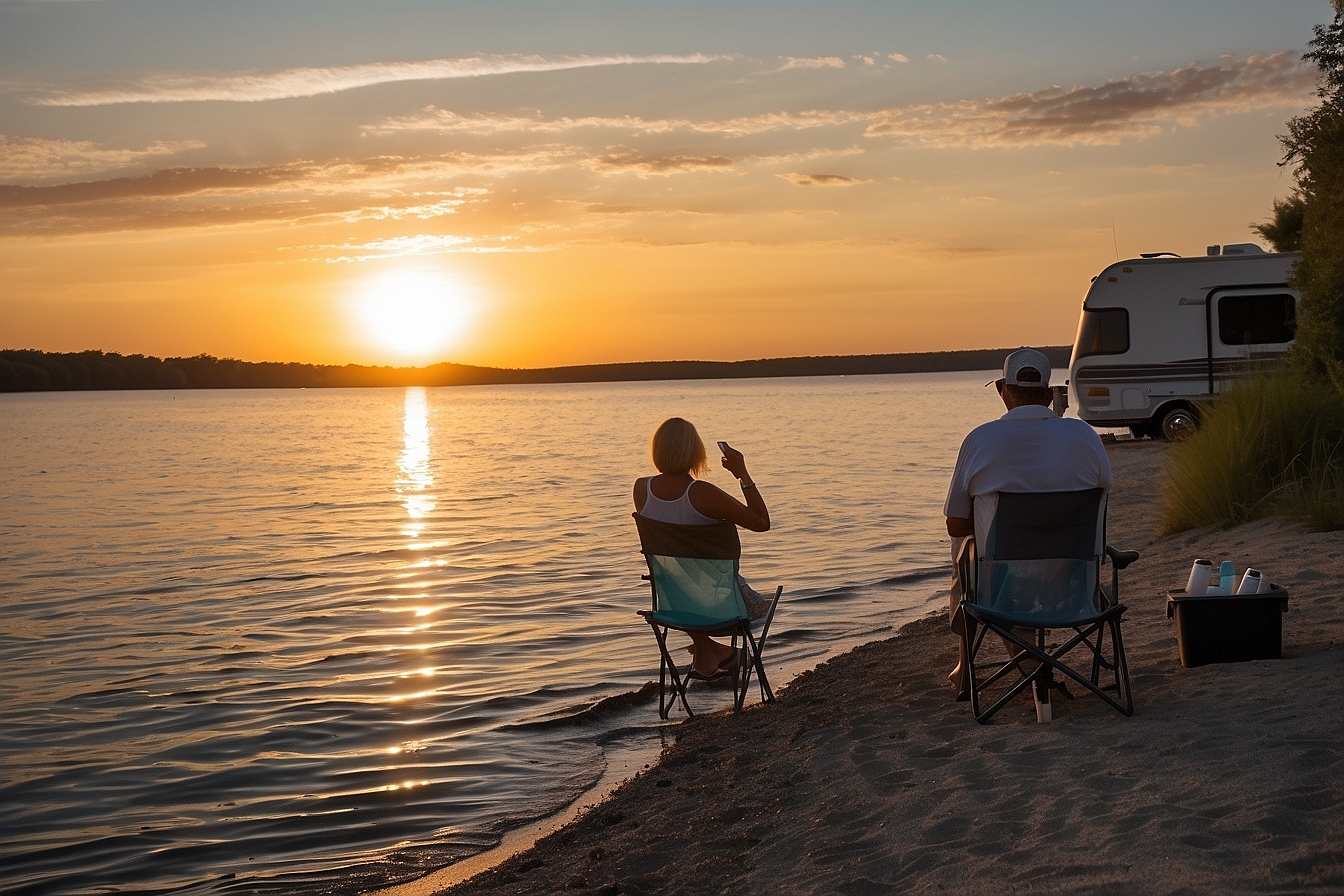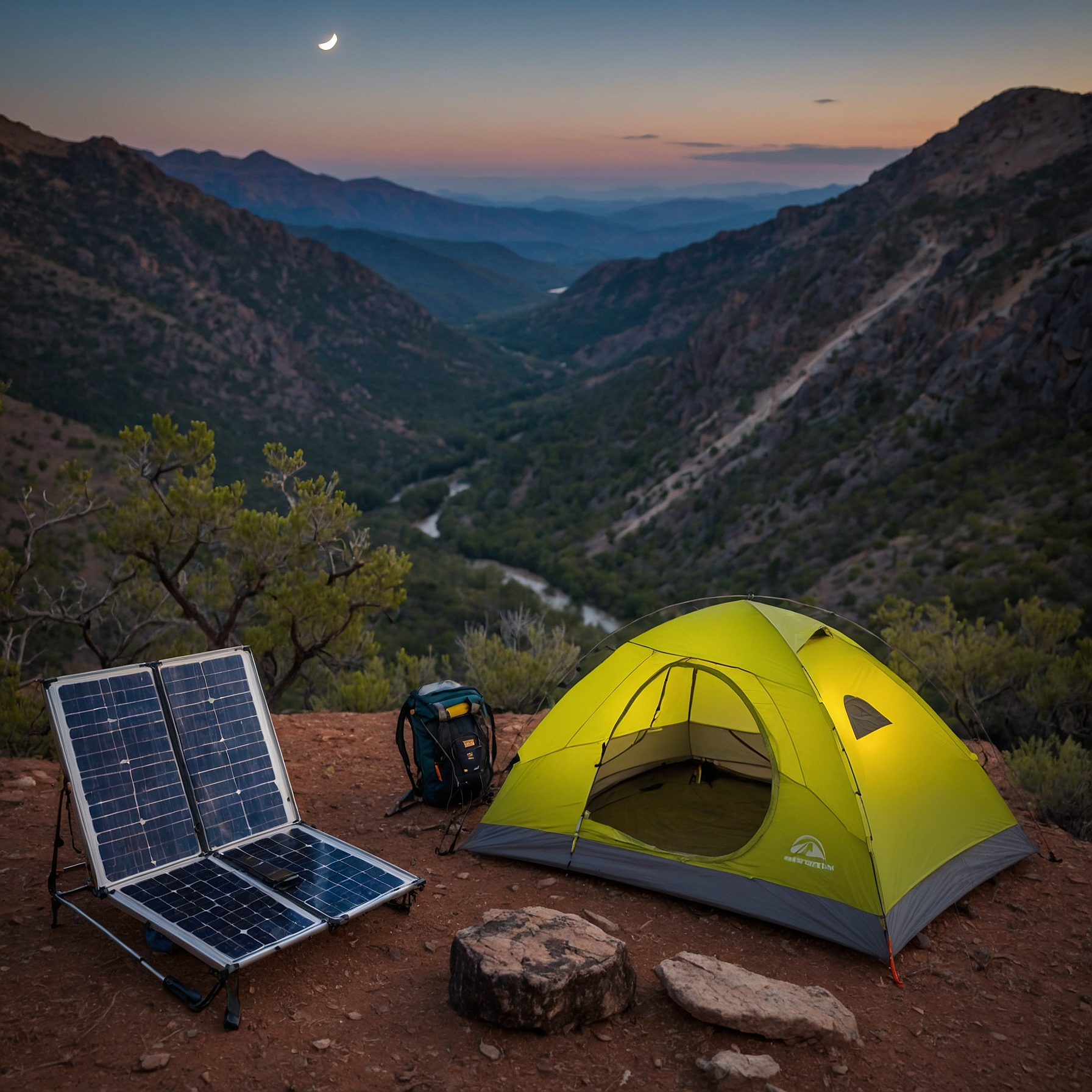
The Rising Popularity of Camper Vans: Exploring the Trend and Its Benefits
cannon
- 0
The allure of camper vans has skyrocketed in recent years, captivating a diverse range of travelers and adventurers. Camper vans, or Class B motorhomes, offer a unique blend of mobility, convenience, and the freedom to explore off-the-beaten-path destinations. This growing trend reflects a shift in lifestyle preferences, with many people seeking to escape the confines of traditional living and embrace the open road.
The evolution of camper vans has also played a significant role in their rising popularity. Manufacturers now offer more sophisticated designs and features, catering to the modern traveler’s needs. Recent models come equipped with innovative technology, comfortable interiors, and enhanced fuel efficiency, making them an attractive option for long-term living or extended road trips.
Consumer trends indicate that a younger, more adventurous demographic is driving the growth of the camper van market. Millennials and other age groups alike are drawn to the idea of flexibility and the minimalist lifestyle that camper van living promotes. This surge in interest has contributed to a booming market, inspiring a range of options that suit different preferences and budgets.
Key Takeaways
- Camper vans combine mobility, convenience, and exploration freedom.
- Modern camper vans feature advanced technology and efficient designs.
- Younger demographics are influencing camper van market growth.
The Evolution of Camper Vans
Camper vans have transformed significantly from their early days as simple leisure vehicles to sophisticated, modern technological marvels. This evolution has been marked by key historical milestones and notable advancements in design and functionality.
Historical Background
The concept of the camper van gained momentum in the mid-20th century. The post-World War II era saw a surge in leisure travel, and the desire for mobile accommodations led to the rise of the camper van. Initial conversions were often homemade, using panel vans as the base. During this period, European campervans, such as the Volkswagen California, became highly popular for their compact size and efficient use of space. In the U.S., brands like Volkswagen capitalized on this trend with iconic models like the VW Bus, which became synonymous with counterculture. The 1970s and 80s witnessed further innovation, with commercial conversion companies enhancing these vehicles, though the market experienced some fluctuations during these decades.
Modern Advancements
In recent years, technological advancements have played a crucial role in redefining camper vans. Modern camper vans now come equipped with state-of-the-art amenities such as solar panels, advanced climate control, and efficient insulation, making them suitable for all-season travel. The #VanLife movement among millennials has further fueled interest in these vehicles. Companies are now focusing on sustainable materials and green technologies to appeal to environmentally conscious consumers. Moreover, the integration of smart home technologies allows for better control and customization of interior environments through mobile apps, enhancing the overall travel experience and comfort.
Economic Impact of Camper Van Popularity
The rise in camper van popularity is shaping market growth and influencing key industry players. This trend is creating significant demand and fostering innovation among manufacturers.
Market Growth
Camper van sales have surged as more people seek flexible and adventurous travel options. In 2024, the RV industry saw a 9.4% increase in shipments. This indicates a robust demand, particularly for Class B motorhomes, which are known for their compact and versatile design.
The popularity of camper vans is contributing to a thriving economy by not only driving sales but also creating employment opportunities. Increased demand for camper vans has led to more jobs in manufacturing, retail, and repair services, reinforcing the economic significance of this trend.
Industry Players
Leading manufacturers are adapting to this trend by innovating and diversifying their offerings. Companies like Sportsmobile are targeting younger, more diverse demographics by embracing modern, customizable designs. This shift is essential for appealing to the millennial generation, which values mobility and unique travel experiences.
Additionally, rising raw material costs are pushing manufacturers to find cost-effective solutions without compromising quality. This reality is driving competition among industry players, fostering advancements in design and functionality. In response, many manufacturers are prioritizing sustainability and energy efficiency, aligning their products with contemporary consumer values.
Consumer Trends Driving Growth
The growing popularity of camper vans is influenced by shifting demographics and changing travel preferences. Understanding these trends is crucial for grasping why this market is expanding at such a rapid pace.
Demographic Interests
Younger generations are driving significant growth in the camper van market. Millennials and Gen Z, in particular, value experiences over material possessions. This demographic is increasingly opting for camper van vacations to explore the outdoors and engage in adventure activities.
Retirees and older adults are also contributing to this trend. Many of them seek increased mobility and flexibility for their leisure activities. Owning or renting a camper van provides them with the comfort and convenience of their own space while traveling.
Families with children are another demographic showing increased interest. The ability to combine travel with home comforts makes camper vans an appealing option for family road trips.
Shifts in Travel Preferences
Travel preferences are evolving as more people seek flexible and immersive travel experiences. Traditional hotel stays and flights are being replaced by road trips and long-term travel in camper vans.
Many individuals are drawn to the idea of exploring remote locations and engaging in outdoor activities. Camper vans offer the autonomy and freedom to travel outside of typical tourist destinations.
There is also a rising interest in sustainable and eco-friendly options. Camper vans can be equipped with solar panels and other green technologies, appealing to environmentally conscious travelers. This aligns with a broader trend toward sustainable tourism and minimal impact travel.
Design and Features
Camper vans today offer a blend of innovative features and customization options that cater to the varied needs of road enthusiasts. These elements enhance both the functionality and comfort of the vehicle.
Innovative Features
Modern camper vans are packed with state-of-the-art features. Many models, such as the Coachmen Nova, come with multiple floor plan options, including layouts with rear baths. This model is about 20 feet 11 inches, providing ample space for various configurations.
Vehicles like the Airstream Rangeline are built on versatile chassis, such as the Ram Promaster 3500, which allows for better handling and traction. Tech-savvy options include integrated solar panels, WiFi capabilities, and advanced navigation systems. Safety features such as lane assist, adaptive cruise control, and enhanced braking systems are also common.
Customization Options
Customization is a significant draw for many camper van owners. Options range from interior layouts to color schemes and material choices. This allows for personalized living spaces that cater to individual tastes and requirements.
Brands offer customizable amenities such as kitchen setups, bedding arrangements, and storage solutions. For those who prefer off-grid adventures, additional features like solar power systems and water filtration units can be installed. Many vans also include options for upgrading insulation and weatherproofing, making them suitable for various climates.
The availability of these customization options ensures that users can tailor their camper vans to suit specific needs, enhancing the overall travel experience.
Environmental Considerations
As the popularity of camper vans rises, more emphasis is placed on their environmental impact. This section addresses sustainability initiatives in the industry and highlights eco-friendly camper van models.
Sustainability Initiatives
Manufacturers are implementing various strategies to reduce the environmental footprint of camper vans. For example, the use of renewable materials in the construction of interiors, such as bamboo and recycled plastics, is becoming more common. Additionally, many companies are adopting energy-efficient technologies like solar panels and lithium batteries to power appliances and reduce reliance on fossil fuels.
Efforts to minimize waste are also significant. Some camper vans now feature composting toilets and water filtration systems to reduce water usage and waste production. These features not only lessen the environmental impact but also provide convenience for travelers looking for sustainable options.
Eco-friendly Models
Several camper van models are designed with the environment in mind. The VW ID BUZZ is a prominent example, known for its electric powertrain and modern design. This model offers a cleaner alternative to traditional gas-powered vans, helping to reduce emissions during travel.
Another significant model is the Thor Motor Coach Sanctuary, which utilizes solar panels and energy-efficient appliances. These features make it an ideal choice for eco-conscious travelers.
Similarly, camper vans like the Winnebago Ekko incorporate energy-saving technologies and sustainable materials throughout their design. This approach not only benefits the environment but also enhances the overall user experience with cutting-edge features that support a green lifestyle.
Camper Vans and Technology
Camper vans have seen significant advancements with the integration of modern technology. Innovations in connectivity and automation make life on the road more comfortable and efficient.
Integration of Modern Tech
Modern camper vans are equipped with advanced tech to enhance user experience. Solar panels are a popular feature, providing renewable energy for off-grid adventures. Compact refrigerators offer convenience, although they can be more expensive than household units.
Smart storage solutions maximize space, and advanced climate control systems ensure comfort in various weather conditions. Some models come with entertainment systems that include flat-screen TVs and surround sound. These technological improvements make camper vans more appealing to a wider audience.
Connectivity and Automation
Staying connected on the road is easier with modern camper vans. Wi-Fi boosters and 4G LTE routers provide reliable internet access, crucial for remote work or entertainment. Smart home automation systems can control lighting, temperature, and security through mobile apps.
Voice-controlled assistants like Amazon Alexa or Google Assistant integrate seamlessly, offering hands-free control. GPS and navigation systems are now more advanced, ensuring smooth travel to remote destinations. These features offer a high-tech, convenient, and connected experience while traveling in a camper van.
Legal and Regulatory Aspects
Understanding the legal and regulatory environment is crucial for those living in or utilizing camper vans. It impacts where you can park and how you must insure the vehicle.
Zoning and Use Regulations
Zoning laws differ significantly by location, affecting where camper vans can park and for how long. In some urban areas, free parking on streets may be restricted or outright banned. This is often due to concerns about safety, congestion, and sanitation.
In places like Maui, efforts are underway to curb the use of camper vans for short-term rentals. New regulations could require permits, limiting where these vehicles can be parked overnight. These zoning laws are often stricter in residential areas compared to designated camping grounds or RV parks, where longer stays are more commonly allowed.
Insurance and Liability
Insurance for camper vans typically covers both the vehicle and its occupants, but the specifics depend on the policy. Comprehensive insurance includes protection against theft, damage, and liability. Many camper van owners consider adding personal property coverage, particularly if they travel with expensive items like electronics.
Liability insurance is also critical, as it covers potential legal fees and damages if the van is involved in an accident. For those renting out their camper vans, additional coverage may be necessary to meet legal requirements and protect against potential claims from renters. Various states have different requirements and it’s essential to review these to ensure compliance.
Lifestyle and Community
The lifestyle associated with camper vans emphasizes mobility, simplicity, and a close-knit sense of community. Enthusiasts often gather at various events and use available resources to support each other.
Nomadic Living
Nomadic living with camper vans allows individuals to travel freely while maintaining availability to various amenities. It appeals to those seeking flexibility in their daily routines.
This lifestyle often includes traveling to remote locations, national parks, and other scenic spots. Many choose camper vans to break away from the rigidity of traditional housing and jobs. They enjoy the ability to explore new places and meet diverse groups of people.
A key aspect of nomadic living is being self-sufficient. Equipped with solar panels, portable stoves, and compact bathroom facilities, these mobile homes enable long-term sustainable living.
Community Events and Resources
Community events play a significant role in the van life movement. Gathering at organized events and meetups, enthusiasts exchange tips, share stories, and bond over their experiences.
Events such as VanFest and Tiny House Festivals are popular among van lifers. These gatherings provide opportunities to see innovative van setups and attend workshops on essential topics like van maintenance and off-grid living.
Additionally, online resources and forums, such as VanLife Diaries and Drifter Vans, offer valuable support. Websites and social media groups nurture a sense of belonging, helping newcomers navigate this unconventional lifestyle and stay informed about upcoming events and meetups.
Challenges and Considerations
When considering a camper van lifestyle, it’s essential to weigh certain challenges such as the financial commitment and the ongoing requirements to maintain the vehicle.
Cost Factor
One of the major challenges of owning a camper van is the initial purchase cost. Camper vans can range from $30,000 to well over $150,000, depending on the make, model, and customization. Prospective buyers must factor in not only the upfront cost but also additional expenses such as insurance, registration, and potential financing charges.
Maintenance and Upkeep
Maintenance is another critical consideration. Regular upkeep includes basics like oil changes, tire rotations, and brake inspections, which can be more frequent due to the demands of travel. Significant repairs could be costly, especially if they involve specialized components or require professional service.
Camper van owners must also stay on top of seasonal maintenance tasks, such as winterizing the vehicle to protect plumbing systems from freezing temperatures. Regular inspections for issues like rust or mechanical wear and tear are essential to ensure safety and longevity. Proper cleaning and care of the interior and exterior also add to the time and financial investment required.
The Future of Camper Vans
As we move into the future, camper vans are set to become even more integrated with advanced technology and environmental sustainability. These changes will enhance the user experience and appeal to a broader audience.
Emerging Trends
The trend towards remote work is leading more people to embrace the RV lifestyle. Digital nomads prefer the flexibility that camper vans offer, allowing them to live and work from virtually anywhere.
Urban camping is gaining popularity as cities accommodate more RV-friendly spots, reducing the need for traditional campsites.
Eco-conscious travel choices are driving the need for sustainable camper vans. Consumers are seeking energy-efficient vehicles with solar panels and eco-friendly materials.
Off-grid capabilities are also a desired feature, including enhanced battery systems and efficient power management solutions.
Innovations on the Horizon
Manufacturers are focusing on electric camper vans to meet the growing demand for zero-emission vehicles. Companies are working on extending battery life and improving charging infrastructure.
Smart technology integration is another area of innovation. Modern camper vans will feature advanced connectivity options, including smart home-style controls, Wi-Fi hotspots, and integrated GPS systems.
Space optimization is a key focus, with modular interiors and convertible furniture allowing for multifunctional use of limited space.
Enhanced safety features, such as collision avoidance systems and advanced driver assist technologies, will become more commonplace. This ensures a safer travel experience for all users.
These advancements point towards a future where camper vans are not just about mobility but also about comfort, sustainability, and safety.
Frequently Asked Questions
The rise in camper van popularity is driven by several factors such as travel trends, market growth, and evolving consumer interests. Here are some common questions related to this phenomenon.
What are the reasons behind the surge in camper van sales?
Travel trends during the COVID-19 pandemic increased demand for mobile living spaces. People sought alternative travel methods, leading to higher sales. As individuals increasingly seek immersive travel experiences and outdoor adventures, the demand for camper vans continues to rise.
How much does it typically cost to purchase a Class B RV?
A Class B RV, commonly known as a camper van, varies in price depending on its features and customization. On average, costs range from $60,000 to over $100,000. This includes new and converted models offering different amenities and capabilities suitable for various budgets.
Where can one find the largest dealers for Class B motorhomes in the United States?
Large Class B motorhome dealers in the US include national chains and specialized RV dealerships. Some of the largest dealers can be found in states like California, Florida, and Texas, which are known for their extensive inventories and dealership networks catering to various consumer needs.
What has contributed to the increasing interest in van life?
Increased interest in van life stems from a desire for freedom and flexibility in travel. The concept of tiny homes on wheels has gained traction, allowing people to explore the country more affordably while embracing a minimalist lifestyle. This is evident in the skyrocketing RV sales during recent years.
Are compact motorhomes experiencing growing demand in the current market?
Yes, compact motorhomes are experiencing growing demand. Consumers are looking for convenient, easy-to-drive vehicles that still offer essential living amenities. This trend is driven by an increased emphasis on practical, efficient travel options that do not compromise comfort.
What are the best places to look for Class B motorhomes for sale?
Prospective buyers can search for Class B motorhomes on specialized websites, RV dealerships, and online marketplaces. Websites dedicated to buying campervans often provide detailed listings and buying guides to help customers make informed decisions.
Related
Post Disclaimer
The information contained in this post is for general information purposes only. The information is provided by me and while we endeavor to keep the information up to date and correct, we make no representations or warranties of any kind, express or implied, about the completeness, accuracy, reliability, suitability or availability with respect to the website or the information, products, services, or related graphics contained on the post for any purpose.

